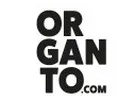Could fresh-cut organic herbs and various lettuce varieties be priced the same as their conventional counterparts in stores? Impossible, or at least not sustainable, many will think. Yet, the Dutch company Fresh Organic Choice is already achieving this and has it as a long-term strategy. We wanted to know more about that and thus approached Manager Hakan Ocaktar.
 Hakan and his colleague Marta
Hakan and his colleague Marta
The conversation's common thread is the fresh-cut herbs and various organic lettuce varieties suppliers' two top goals: offering products with the smallest possible ecological footprint and boosting organic produce consumption as a healthy, eco-friendly alternative by keeping prices low. "Organic is usually 20-40% pricier than conventional products and, for many people, that still proves to be a hindrance," begins Hakan.
"That, of course, means we make less profit. You could see it as a strategy to put ourselves on the market, but our goal is to keep prices competitive in the future and stimulate demand for organic. That benefits consumers and the environment. But, for now, we also ensure our grower-partners earn a good living."
No air freight…
Fresh Organic Choice was founded in 2017 by Wilco Heemskerk and acquired by Organto Foods in 2021 to enable scaled economies. The company sorts and packs herbs - bought in bulk mainly from Italian, Spanish, Portuguese, and Moroccan growers - in the Netherlands. "We don't work with suppliers in Kenya or Colombia because that would mean air freight. Our fresh-cut herbs and lettuces arrive in the Netherlands by truck or boat to keep their carbon footprint as small as possible," says Hakan.
 Sealing procedure
Sealing procedure
…or greenhouse products
Why no herbs and lettuce from Dutch greenhouses? That would save a lot of transport kilometers for sales in the Benelux and the company's several customers in the UK, France, and Germany. "We deliberately sell very few greenhouse-grown herbs and lettuce varieties. Studies show that their footprint is actually much higher than open-field herbs and lettuce, including transport from the Mediterranean."
"I'd go as far as to say, leaf parsley, from a greenhouse 20 km from its sales point's eco-footprint is ten times higher than the Italian variety, grown in a field, and sent 2,000 km by truck. Then, there's the taste difference. Fresh herbs grown naturally, outside, with sun, rain, and wind, have a far more intense flavor," Hakan explains.

Grower and customer programs
Fresh Organic Choice sources its organic herbs and lettuce from regular partners. The amount of product needed for the coming period is always indicated. "Those programs are pretty broad. Since it's open-field cultivation, there's always the risk that Mother Nature could upend the apple cart." That is why Fresh Organic Choice works with several suppliers in different countries to meet customer demand consistently. "If we have a surplus outside client programs, we either sell those growers' herbs and lettuce on the open market or suggest a promotion to retail buyers. We want to meet customers' needs but also give our suppliers marketing security," he says.
Fresh Organic Choice's customer base consists of retailers, supplemented with a few food service companies, including meal kit vendors. The company works with the largest organic specialty stores in the Netherlands. Still, Hakan says they also want to get their organic herbs and lettuces on regular supermarket chain shelves alongside conventional products. "And at the same price, so everyone can begin eating organic."
Sorted by hand
Basil, coriander, mint, and parsley comprise the top four herbs. "I don't dare say, off the bat, if the quality differs from country to country. The weather is the more decisive factor. For example, too much or too little sun has an impact. Coriander, a particularly versatile product whose sales have boomed in the last five years, can sometimes arrive quite yellow because of too much sunlight. Then it has to be carefully sorted," says Ocaktar.

That is done entirely by hand in the Netherlands. "It would be cheaper to sort the herbs in Morocco, but then the packaged product has to make a long journey. To avoid any quality issues en route, we prefer bringing in all of the herbs in bulk and packaging them here." Hakan adds they can help customers with small, ten-piece orders or large, 2,000-bag ones.
Fresh-cut only
Fresh Organic Choice does not carry potted herbs. "Here again, sustainability comes into play. The quite large, heavy plastic pot and potting soil create a larger footprint than the recycled, recyclable, and/or biodegradable materials used to package fresh-cut herbs. Also, experience shows that people only use some of the potted herbs before the plants wilt. That leads to food waste at home. The solution? Measured portions," Hakan points out.
He is sure the organic herbs and lettuce segment has a bright future. "The range used to be limited and focused on winter dishes, like soup. There's an increasingly extensive range of herbs and lettuce varieties, even in summer. Think of the many global dishes, teas, cocktails, etc. There's a constant demand market, and we want to respond to that. Preferably with organic products," Hakan concludes with a wink.
 For more information:
For more information:
Organto Foods Inc.
Tel: +1 647 629 0018
Email: [email protected]
